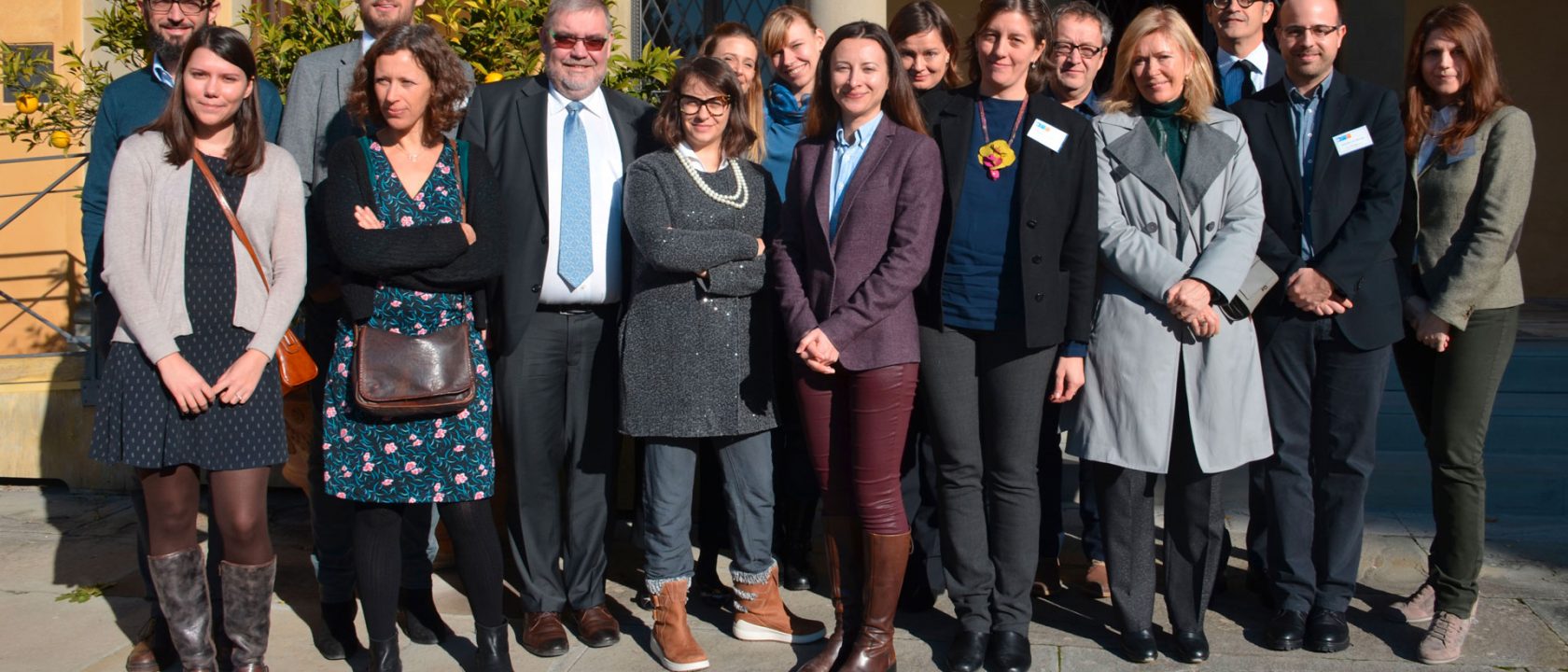The Centre for Judicial Cooperation is hosted at the Robert Schuman Centre for Advanced Studies and has been headed by Professor Deirdre Curtin since January 2016.
Since its set up, in December 2011, the Centre has developed a wide network of judges, lawyers and scholars, for the purpose of establishing a space for collaboration and exchange of knowledge between legal practitioners and the academic community on topics related to judicial interaction across various areas of law. Through its activities and expertise, the Centre engages with both practitioners and academics on various activities ranging from workshops and conferences to pure research and policy endeavours.
Its current DG Justice supported projects, e-NACT, JudIT, and InterLEX provide several occasions to foster the emergence and consolidation of a common culture of fundamental rights through mutual exchanges among practitioners and scholars across the EU.
Its key areas of research consist of the exploration of legal and judicial interactions in the area of fundamental rights, and in various thematic areas, including, inter alia, migration and asylum law, data protection, and non-discrimination.
In order to disseminate the results of its work, the Centre publishes open access papers, such as handbooks, reports, and ‘distinguished Lecture’ papers addressing the judicial and academic communities.
Moreover, the Centre’s Database includes case-law gathered by the expert team in collaboration with the national legal practitioners, providing a practical tool able to improve the understanding and use of judicial interaction techniques within the scope of the application of the EU Charter.
In 2018, the Centre launched a Lecture series inviting academics, policy makers and legal practitioners on a monthly basis to give distinguished lectures presenting their recent research or work-related experiences. Topics ranged from the aftermath of landmark CJEU decisions on national case-law and policy choices, the revision of the national Criminal law code, the impact of data protection reform on judicial dialogue, fundamental rights and migration policies, and the use of AI and big data for law enforcement purposes.
![]() Funded by the European Union. Views and opinions expressed are however those of the author(s) only and do not necessarily reflect those of the European Union or the European Education and Culture Executive Agency (EACEA). Neither the European Union nor EACEA can be held responsible for them.
Funded by the European Union. Views and opinions expressed are however those of the author(s) only and do not necessarily reflect those of the European Union or the European Education and Culture Executive Agency (EACEA). Neither the European Union nor EACEA can be held responsible for them.

